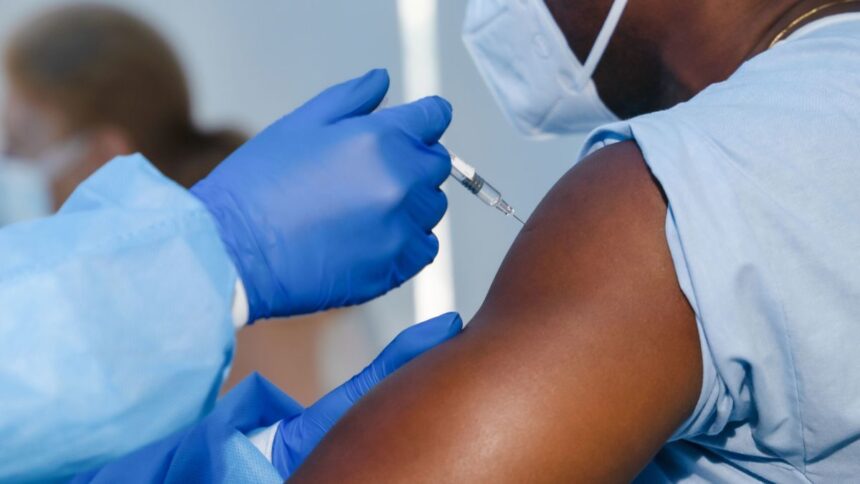It’s been a year since CDC declared racism a public health threat. Now what?

By Jacqueline Howard, CNN
As Covid-19 cases, hospitalizations and deaths continue to decline across the United States, health leaders warn that the crisis is not over — especially in the Black community.
A new report details the disproportionate impact the Covid-19 pandemic has had on Black Americans and calls for “the most precise data” on race and ethnicity to address this health inequity.
The two-year report was released by the Black Coalition Against Covid-19 last week, ahead of Friday’s first anniversary of the head of the US Centers for Disease Control and Prevention declaring racism “a serious public health threat.”
That declaration gave “legitimacy” to conversations that have been taking place across all sectors of health care for some time, said Dr. Reed Tuckson, co-founder of the coalition.
The statement also shows that the CDC understands structural racism to be a “fundamental root cause of so much of the health disparities in America,” Tuckson said. “This is not a political issue. It is a human health and survival issue.”
The new report not only serves as a reminder that the Covid-19 pandemic is not over — particularly for the Black community — it is a “call to action” to address problems that existed long before the pandemic, Tuckson added.
“Now that we go back and look at all that has happened to us and all that we’ve learned, it is now time to focus everybody’s attention on going back and fighting the old fight,” he said.
The striking racial disparities in Covid-19 outcomes seen over the past two years were not a result of the disease itself, but rather the pandemic “illuminated inequities that have existed for generations and revealed for all of America a known, but often unaddressed, epidemic impacting public health: racism,” CDC Director Dr. Rochelle Walensky said in a statement on April 8, 2021.
“Racism is not just the discrimination against one group based on the color of their skin or their race or ethnicity, but the structural barriers that impact racial and ethnic groups differently to influence where a person lives, where they work, where their children play, and where they worship and gather in community,” Walensky said. “These social determinants of health have life-long negative effects on the mental and physical health of individuals in communities of color.”
Since the start of the pandemic, the risk of dying from Covid-19 has been nearly twice as high for Black and Hispanic people in the United States than for White people, data from the CDC shows. Black and Hispanic people also faced a higher risk of coronavirus infection and were more than twice as likely to be hospitalized.
Even as Covid-19 cases, hospitalizations and deaths trend down in the United States, Black Americans recently experienced the “highest rate of hospitalization” for any racial and ethnic group since the inception of the pandemic, according to the new report.
During the week ending January 8, the hospitalization rate for Black Americans was 64 per 100,000 people, the report notes. That is double the overall weekly rate of hospitalizations for all races during the same time frame and nearly triple the rate of hospitalizations for White people at any point during the pandemic, according to a CNN analysis of CDC data.
“This was the highest weekly rate of any race and ethnicity at any point during the pandemic,” according to the report.
While Covid-19 hospitalizations have since fallen among all racial and ethnic groups and are now at their lowest point on record, CDC data from mid-March shows that weekly hospitalization rates were still highest among Black people and Native Americans in the US.
The report also references significant disparities in how the pandemic has affected children. One in 310 Black children lost a parent or caregiver between April 2020 and June 2021, compared with 1 in 738 White children.
The report mentions that “racial and ethnic disparities” are expected to persist as people continue to have long-term Covid-19 symptoms.
The report’s authors are physicians and public health experts including Tuckson and Dr. Marcella Nunez-Smith, who chaired President Biden’s Covid-19 Health Equity Task Force. They wrote that “the severity of COVID-19 among Black Americans was the predictable result of structural and societal realities, not differences in genetic predisposition.”
Now, Black health leaders call for more precise data on such racial disparities and how they affect public health.
“If we are going to effectively address health equity among Black Americans, having access to the most precise data is vital,” the report’s authors wrote.
As of this week, the CDC website tracking Covid-19 data says the agency “is working with states to provide more information on race/ethnicity for reported cases.” Currently, race and ethnicity data are available from the CDC for only 65% of total cases and 84% of deaths.
“This report draws attention to the continued disproportionate burden experienced by members of the Black community and will help guide advocacy and policy efforts to address these inequities—both during the current pandemic and beyond,” Nunez-Smith wrote in the report’s forward. She notes that she was commissioned by the Black Coalition Against Covid to produce the report.
“Given generations of systemic disinvestment in the health of Black communities in the United States, the starkly disproportionate rates of COVID-19 illness and death are not surprising,” Nunez-Smith wrote. “This report situates alarming pandemic-related disparities within these deeper societal inequities, and provides guidance to move towards sustained change.”
While the trajectory of the pandemic remains uncertain, Tuckson made clear the need to continue to spotlight the health of Black America amid Covid-19 and beyond.
“If we don’t do it, somebody else is going to have to do it,” he said. “We have a lot of work ahead of us and a lot of problems that have gotten so much worse.”
The-CNN-Wire
™ & © 2022 Cable News Network, Inc., a WarnerMedia Company. All rights reserved.
CNN’s Deidre McPhillips contributed to this report.